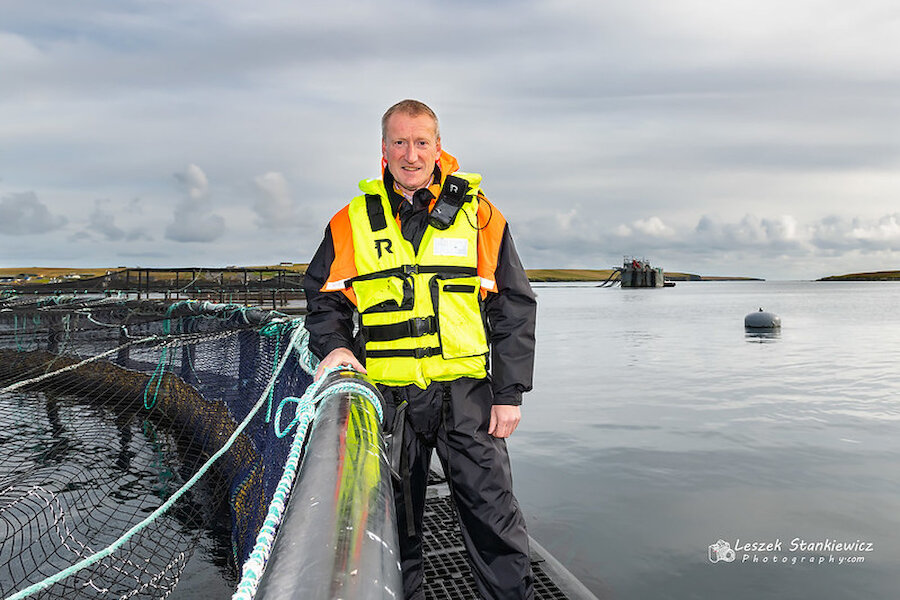Salmon Scotland chief executive Tavish Scott is up front about the most pressing conundrum facing the industry – sustainability.
“It’s the biggest challenge that all producers of protein face, whether you are crofting in Shetland or growing fish in sea pens. We need to be part of the worldwide drive to reduce emissions and help Scotland and the UK achieve net-zero carbon targets.”
But Mr Scott is confident that steps being taken in Shetland, both by those working within the sector and strategic organisations like the Orion Clean Energy project, mean net-zero salmon production will be a reality.
Nationally, Scottish salmon is the number one UK food export. One fifth of that is fish produced in Shetland.
Given the scale of its production, isles-based aquaculture expects to play a big part in the carbon reduction drive.
